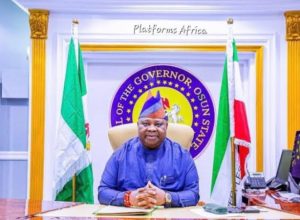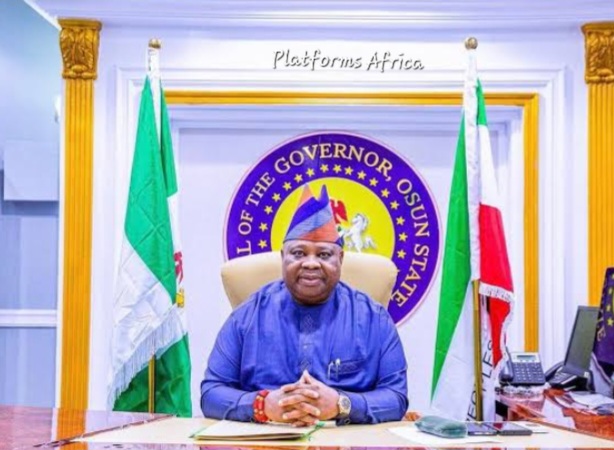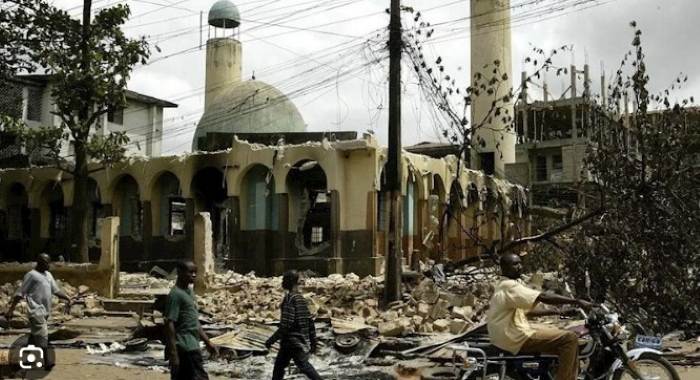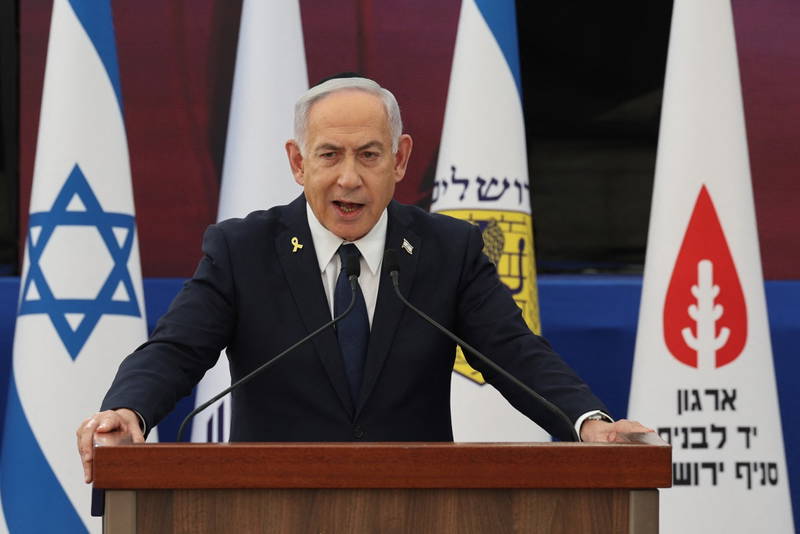‘Here are Four Legal Implications of the Current Crisis That As Brought Grassroot Governance To Its Kneels In The State of The living Springs,’ Lygel & Youths Leadership Initiative Gives Details
A group, Lygel & Youths Leadership Initiative, has strongly condemned the prolonged closure of local government councils in Osun State and the unlawful withholding of their funds for 163 days.
These actions, Olalekan I Oladapo,
Director of Legal & Compliance said in a statement, “undermine grassroots governance, flagrantly violate constitutional provisions, and subvert the recent Supreme Court judgment granting full autonomy to local governments.”
Since February 17, 2025, millions of Osun residents, the statement Oladapo sent to Platforms Africa reads, “have been deprived of access to essential services, with stalled infrastructure, halted economic empowerment programs, and a breakdown in local administration. This crisis is the product of a dangerous political struggle between the Federal and Osun State governments, both of which have engaged in actions that run contrary to the Constitution and the rule of law.”
Nigeria Loses About N17.9trn Annually To Hepatitis — Minister
UK Doctors Begin Five-Day Strike Despite PM’s Plea
Nigeria Nurses Shun Govt Talks, Begin Strike
‘She Lied,’ Analyst Faults Badenoch’s Claim Her Children Can’t Get Nigerian Citizenship
RCCG Pastor Absconds With $8,000 Church Money, Abandons Wife For New Spouse
INEC Announces Dates For Ekiti, Osun Governorship Polls
‘Lost Battle To Prostate Cancer,’ How Nollywood Actor, Tom Njemanze, Died
Spotlighting the causes and effects of the issue on the people, the group highlighted four deepened Legal Implications of the Current Crisis.
Here is the statement below.
1. Constitutional Breach by Both State and Federal Governments
Section 162(3)-(8) of the 1999 Constitution (as amended) mandates that funds from the Federation Account be released to local governments directly, as recently affirmed in Attorney General of the Federation v. Attorney General of Abia State (2024).
The Federal Government’s withholding of funds on the grounds that Osun local governments are not democratically elected contradicts the Supreme Court judgment. The apex court’s ruling made clear that local government autonomy is not conditional on the political wrangling of state or federal actors.
The conflicting interpretations—between the Court of Appeal order for reinstatement of 2022 chairmen and other decisions of the courts nullifying those elections—have been exploited politically by both sides to cripple governance.

Both tiers of the government are in violation of Section 7(1), which guarantees a system of local government “democratically elected.” The failure to resolve electoral disputes lawfully does not justify the suspension of constitutional governance or better still using the lower courts as pretext of upholding the supreme court decision under the guise of withholding the funds for the local council and withdrawing services is no justification rather.
2. Contradiction to the Supreme Court Decision
The Supreme Court, in its 2024 landmark decision, explicitly prohibited state interference with local government funds and affirmed direct allocation to councils.
The Federal Government’s reliance on the absence of democratically elected councils as a reason to withhold funds is inconsistent with the spirit of this judgment because the court intended to insulate local governments from political manipulation—precisely the kind of manipulation now unfolding.
The State Government’s failure to conduct valid elections in line with the Electoral Act created the initial legal vacuum, but the Federal Government’s punitive response by seizing funds only deepens the constitutional violation.
The actions of both governments amount to contempt of the Supreme Court decision and an erosion of judicial authority.
3. Unconstitutional Suppression of Local Government Autonomy
Section 1(2) prohibits the exercise of governmental power except as provided by the Constitution. Both federal and state actors, by withholding funds and preventing councils from functioning, have exercised power in ways not authorized by the Constitution.
Section 7(1) expressly mandates the democratic existence of local councils. The ongoing paralysis negates this guarantee.
‘Strange Resurrection,’ Four Animals That Sleep And Wakeup After Six Months
Pull Your Son’s Ears Now, By Funke Egbemode
‘Death Per Second,’ How Doctors’ Illegible Handwriting Caused 137,000 Deaths In 1 Year
‘Men Don’t Walk In, They’re Mostly Carried To Hospital When It’s Too Late’
‘He Left UK, Told Wife He Was In Northern Ireland,’ Husband Dies Visiting Girlfriend In Lagos
Team Lead Platforms Africa, Adeola Yusuf, Bags PhD
The cumulative effect is that both levels of government have violated constitutional supremacy (Section 1(1)) by acting in a manner inconsistent with clear provisions and judicial interpretation.
4. Political Weaponization of NULGE Strike
The withdrawal of service by NULGE has:
Violated essential service obligations and worsened the suffering of citizens.
Contravened labour laws since it is a politically induced action rather than a lawful industrial dispute.
Breached their responsibility to uphold public interest as workers in a constitutionally protected service.
Proposed Legal and Constitutional Solutions
1. Immediate Judicial Clarification
The Supreme Court or a Federal High Court should be approached to interpret whether the Federal Government can condition direct allocations on the existence of democratically elected councils, in light of Section 7(1) and its own 2024 judgment.
This will close the loophole both sides are exploiting.
2. Enforcement Proceedings
Civil society and affected citizens can initiate contempt proceedings or a mandamus action compelling compliance with the Supreme Court’s judgment on autonomy and direct allocations.
3. Transitional Administrative Measures
An independent caretaker or administrator arrangement, sanctioned by court order, can be temporarily implemented to ensure that funds are used for development pending final electoral resolutions.
4. Constitutional Amendment Advocacy
The current ambiguity in Section 7(1) regarding consequences for non-democratic councils should be addressed through constitutional reform to prevent similar crises.
Our Call to Action
We demand:
Immediate release of withheld funds to Osun councils to resume governance.
Federal and State compliance with both the Constitution and Supreme Court judgment.
Urgent resolution of the electoral dispute without further politicization.
Public mobilization to hold both governments accountable.
Next Steps: Advocacy & Legal Action
If the crisis continues, Lygel & Youths Leadership Initiative Ltd/Gte will:
File legal actions to enforce constitutional compliance and Supreme Court orders.
Petition the National Assembly for legislative intervention to safeguard grassroots governance.
Mobilize Nigerian youths, civil society organizations, and international human rights groups to demand accountability.
Launch nationwide advocacy campaigns to protect local government autonomy.
It is time to put an end to this political sabotage. Grassroots governance must not die in Osun State. We urge all men and women of conscience to rise against this injustice.
Signed:
Olalekan I Oladapo Esq
Director of Legal & Compliance
Lygel & Youths Leadership Initiative Ltd/Gte





